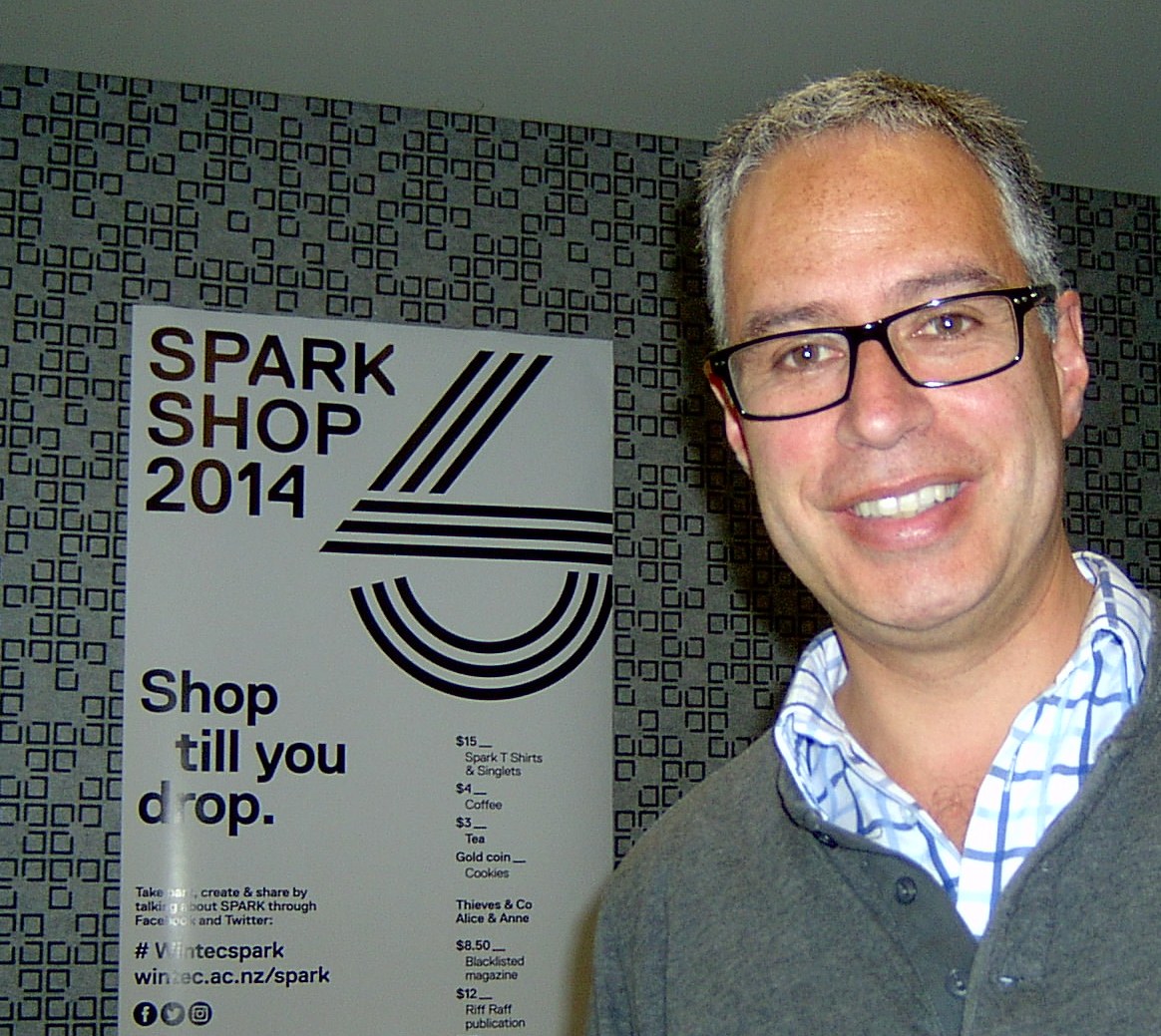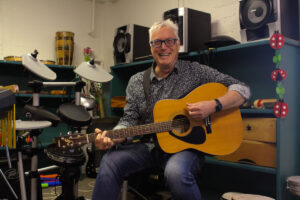Earthquake impacts artist’s work
Abstract artist Darryn George showcases his grand scale works at the SPARK International Festival of Media, Arts and Design.
Christchurch artist Darryn George paints so big, you need a 5 metre-wide printer to produce some of his work and a ten-story building to display it on.
George’s canvas has been his hometown of Christchurch City, both before and after the earthquakes of 2011.
“When that [February] earthquake hit in the middle of the night, we didn’t know what was going on. I tried to get upstairs to our children. I got thrown against the wall. It was violent. We couldn’t get upstairs. In those first few moments we were just praying that the kids would be ok.”
George and his wife prayed the roof did not collapse on their children while they clung on to the beds and furniture so they would not be tossed around in the darkness.

The worst never happened.
Aftershocks continued for months however, and in the midst of the shaking, all Christchurch people could do was pray, George said.
Three months after the February quake, George decided to paint something to do with the earthquake, but he did not want to paint broken down buildings.
He began to reflect on the experience for him personally and decided to paint what came to be known as “prayer panels.”
Inspired by the “I Am” paintings of Colin McCahon and from his personal experience during the February quake, George began exploring the Māori word “Atua” meaning “God” or “spirit”.
“Why don’t I just repeat that word over and over again? Sometimes it’s big – it’s a loud cry for help. Sometimes it’s very small – it’s a small whispered prayer. Sometimes the word is cut off – another aftershock hits… Prayer stops.”
At the Spark International Festival of Media, Arts and Design, George talked about seven of the large works he produced by himself or as a member of a design team.
For young artists coming through George says, “Hone your gift, work hard at your practice, test out your ideas, produce work you really feel strongly about and comfortable about. On the other side of things, you’ve got to be a nice person I think. People can see you’re an ok person to work with. There’s a character thing which is very important as well, I believe.”




